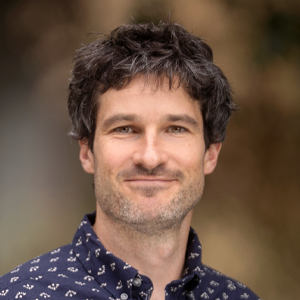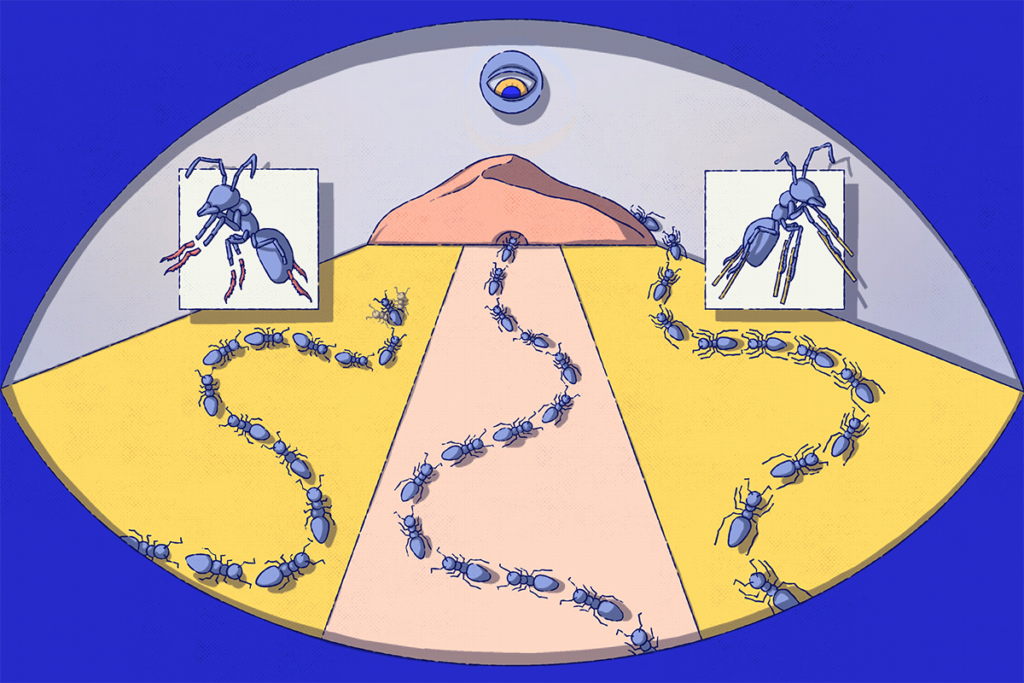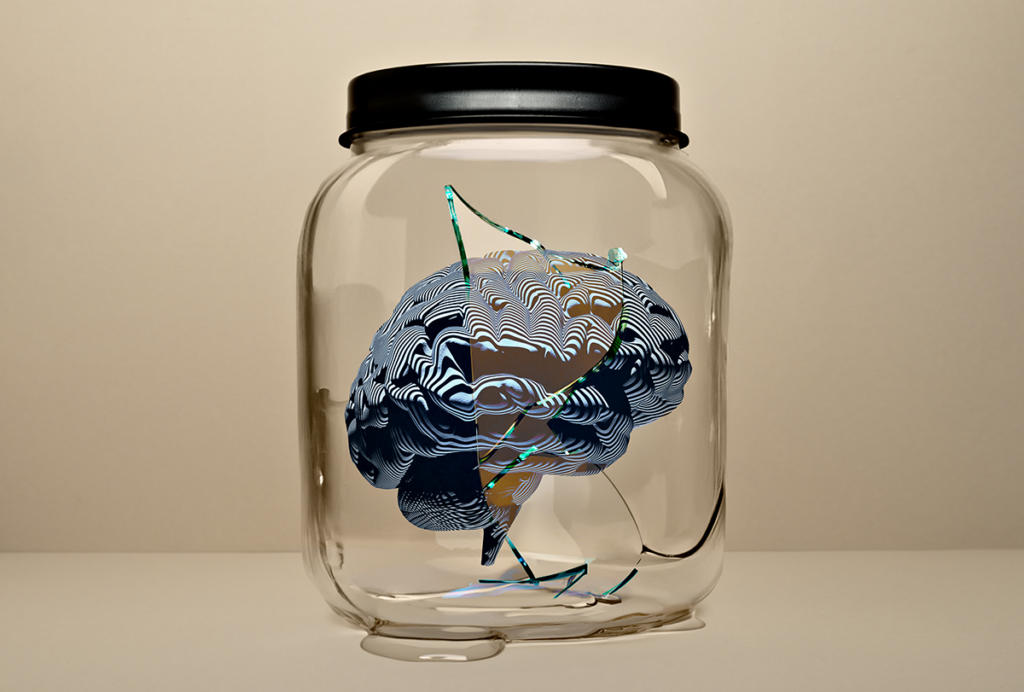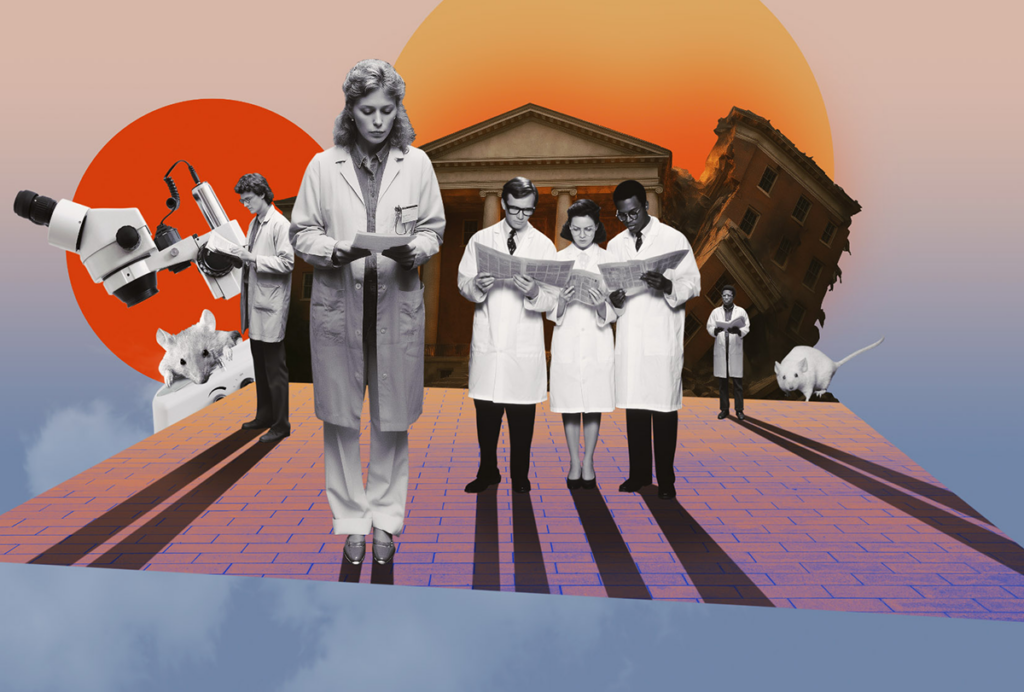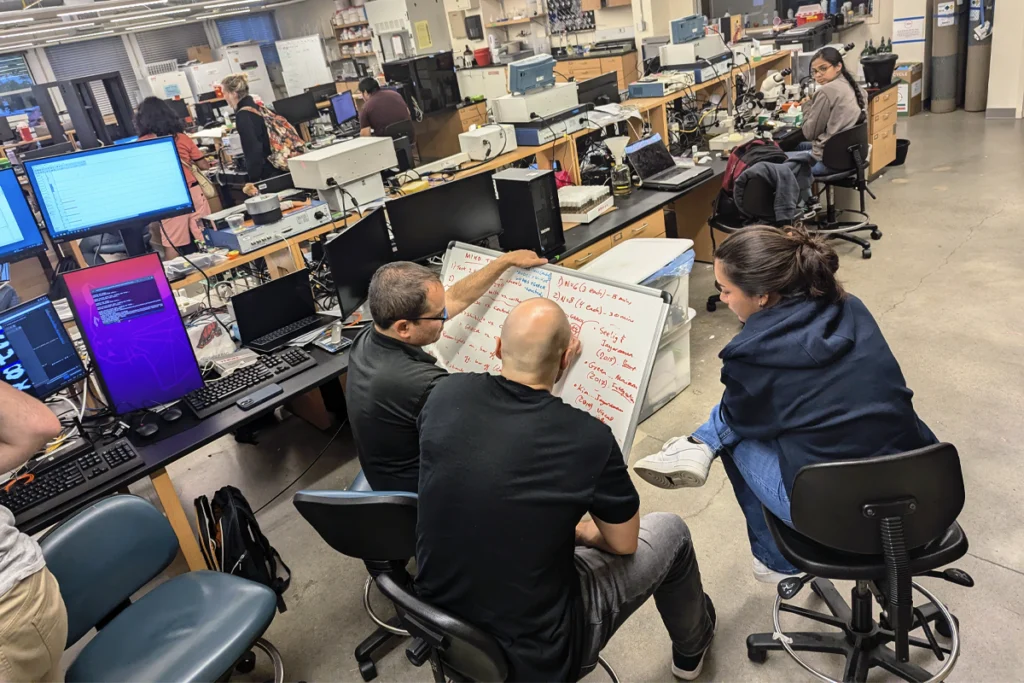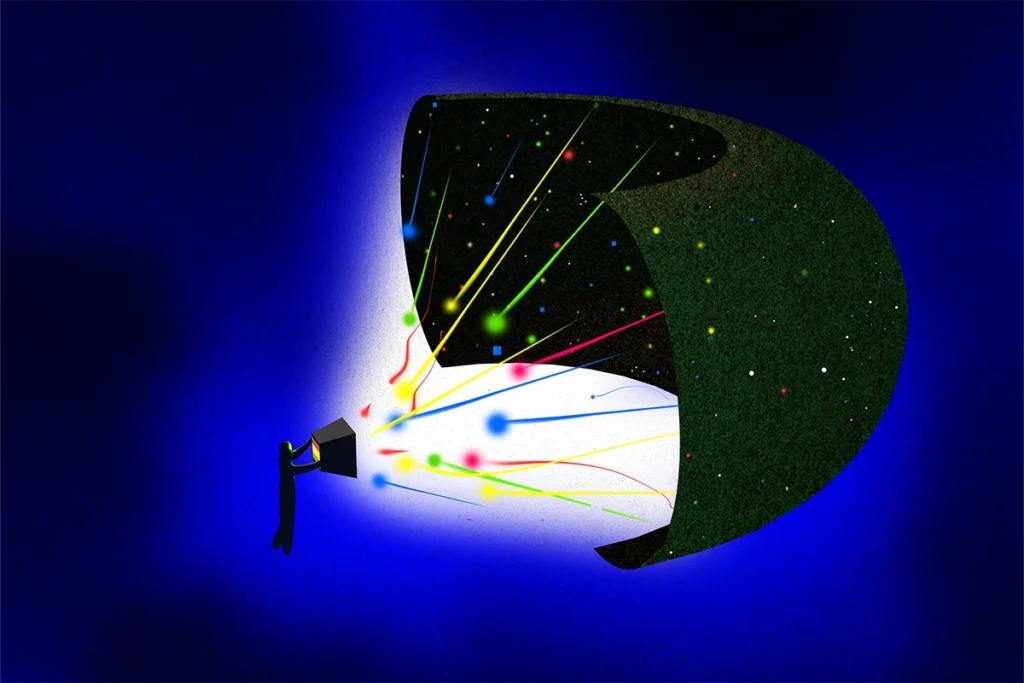John Tuthill is professor of neurobiology and biophysics at the University of Washington. His lab investigates how the nervous system keeps track of the body through the sense of proprioception, and how proprioceptive neural signals are used to guide motor patterns like walking.
He received his B.A. in biology and anthropology from Swarthmore College and completed his Ph.D. studying visual motion circuits in the Drosophila brain with Michael Reiser at the Howard Hughes Medical Institute’s Janelia Research Campus. He then did a postdoctoral fellowship on the neural mechanisms of touch processing with Rachel Wilson at Harvard Medical School. In 2016, he started his lab at the University of Washington. Tuthill is a recipient of the Pew Biomedical Scholar Award, the Searle Scholars Award, the Sloan Research Fellowship, the Klingenstein-Simons Fellowship and the McKnight Scholar Award, and he is a Robertson Investigator of the New York Stem Cell Foundation.
